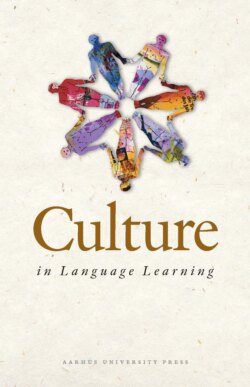Читать книгу Culture in Language Learning - Группа авторов - Страница 14
На сайте Литреса книга снята с продажи.
2.2.3 Culture as the moral right to be heard and listened to
ОглавлениеThe paradox is that once a person has been stripped of her national culture and been made into a free-standing, rational, autonomous agent, the burden is on her to maintain her integrity and free will against the enormous pressure to conform to the will of the marketing industry, and the demands of the national political majority. Cameron (2000) shows some of the pervasive ways of talking and thinking in a global culture that fetishizes ‘communication’, ‘partnership’, ‘options and opportunities’, ‘initiative’ and ‘entrepreneurship’. In the U.S., the nationalistic discourse of ‘freedom’, ‘democracy’ and ‘homeland security’ is equally constraining. Membership in a cultural group seems to be the only safeguard left against the domination of the market and the tyranny of the majority. Hence the growing demands for political recognition of individuals who define themselves not as free standing individuals, but as members of cultural groups characterized by race, ethnicity, gender, occupation, sexual preferences, regional affiliation etc.
A post-modernist perspective understands cultures to be in principle of equal worth, but in fact they are objects of moral and ideological struggle; hence the term ‘culture wars’ to denote the clash between different social and moral values that different cultures represent (Taylor 1994). For example, the current debate about the wearing of the Muslim scarf in French schools highlights the dilemma of the French educational system that needs to maintain the hard won separation of church and state while preserving the right of each individual to his/her own culture. The popularity of social and cultural theory among language educators (e.g., Luke 1996) shows how closely language is related to power in the teaching of culture in language study. Ultimately, the need to teach culture confronts the language teacher with a political dilemma, namely, how to teach cultural and moral difference without ignoring the incommensurable and even conflictual aspects of that difference. The increasingly polarized world we live in does not make the task of the language teacher any easier.
